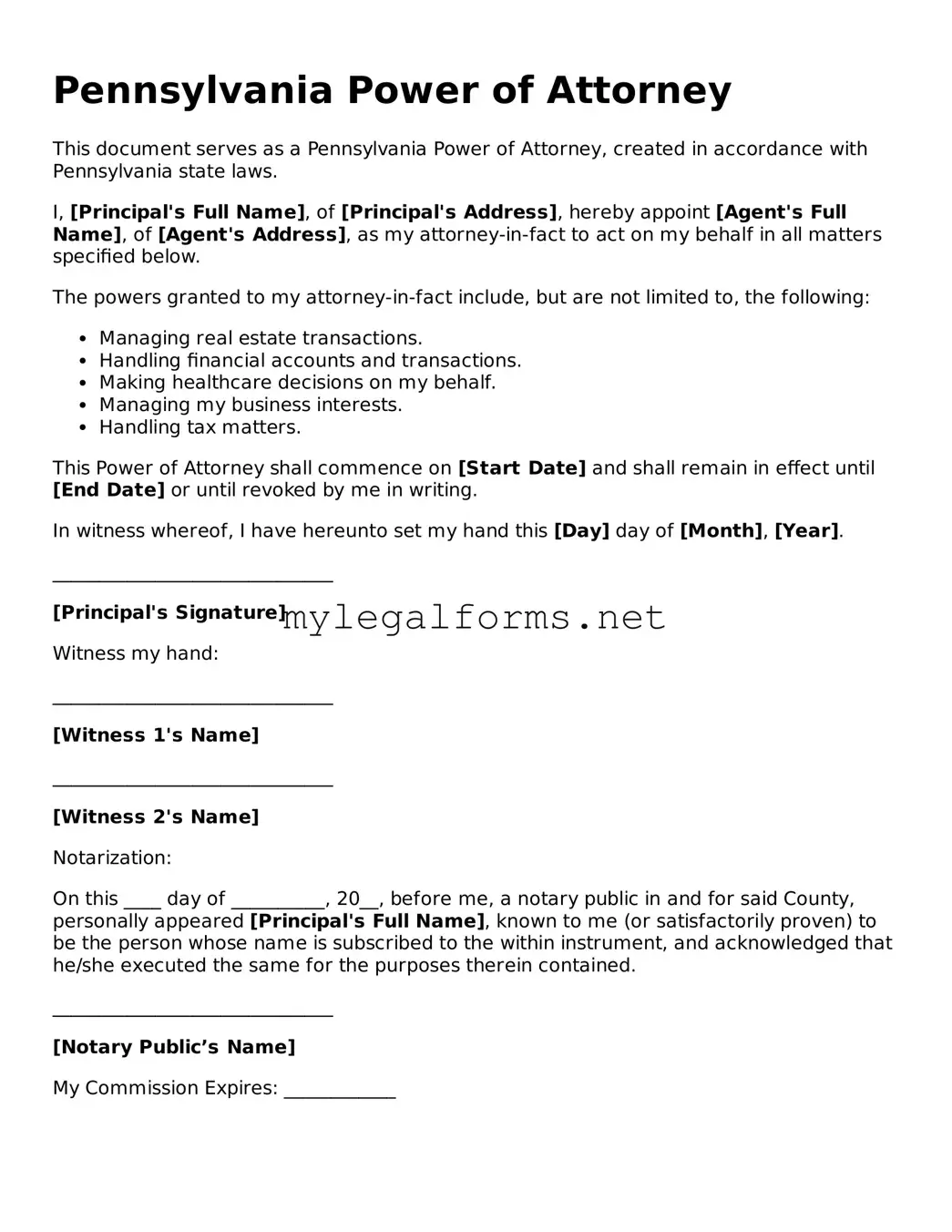Power of Attorney Document for Pennsylvania State
The Pennsylvania Power of Attorney form is a legal document that allows an individual to designate another person to make decisions on their behalf. This arrangement can be crucial for managing financial matters, healthcare decisions, or other personal affairs when one is unable to do so. Understanding the nuances of this form is essential for ensuring that your wishes are respected and upheld.
Launch Power of Attorney Editor

Power of Attorney Document for Pennsylvania State
Launch Power of Attorney Editor

Launch Power of Attorney Editor
or
⇓ PDF Form
Complete the form at your pace — fast
Finish your Power of Attorney online and download the final version.